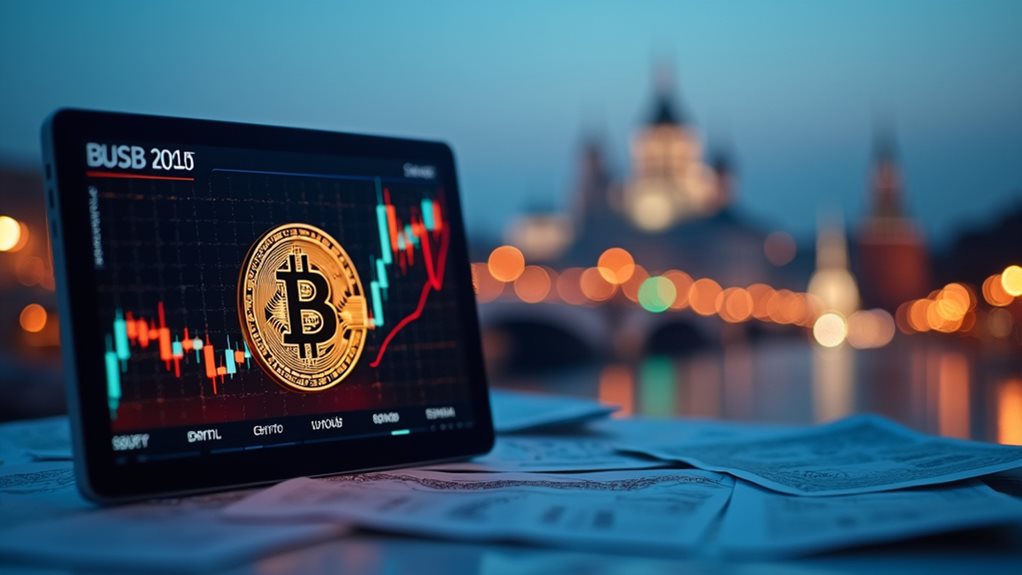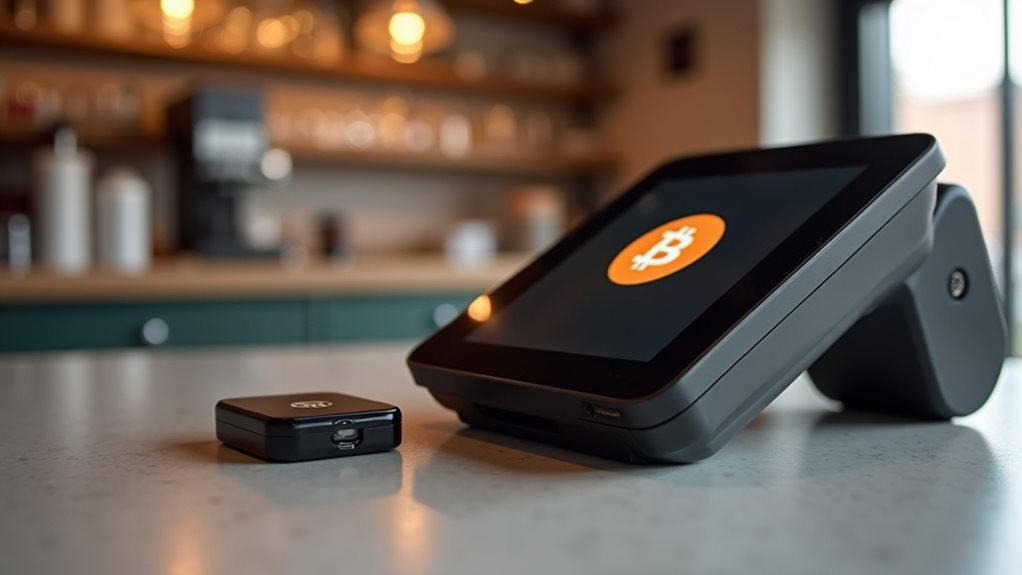Bitcoin’s transformation from internet money to strategic asset is turning heads. Global trade wars and economic chaos have pushed the cryptocurrency into an unexpected spotlight. Major players like BlackRock and Fidelity now embrace what they once mocked, with ETF inflows hitting $600 million in 2023. Bitcoin’s decentralized structure offers a nimble escape route from traditional financial constraints. Its role as a safe-haven remains complex, but the digital currency’s growing influence in global finance tells a deeper story.

Chaos has a way of creating opportunities. As trade wars rage and traditional financial systems stumble, Bitcoin has emerged as an unlikely hero in the global economic drama. Who would’ve thought that a digital currency, once dismissed as internet money for tech geeks, would become a strategic asset in times of economic turbulence?
In times of global chaos, Bitcoin has transformed from digital curiosity to economic lifeline, reshaping how we view financial stability.
The numbers don’t lie. While governments squabble over tariffs and sanctions, Bitcoin’s decentralized structure offers a neat workaround for cross-border transactions. Improved efficiency through blockchain has dramatically reduced transaction costs for businesses worldwide. Recent data shows ETF inflows reaching $600 million this year alone. It’s like watching a chess game where the pawns suddenly learned to fly. Traditional currencies, bogged down by regulatory red tape, simply can’t compete with Bitcoin’s borderless nature.
Major financial institutions are finally catching on – and it’s about time. BlackRock and Fidelity, those stalwarts of old-school finance, have jumped on the Bitcoin ETF bandwagon. Not bad for a currency that was once compared to magic internet money. The irony isn’t lost on anyone: the same institutions that once mocked Bitcoin are now its biggest cheerleaders. Spot ETF trading offers investors a simpler way to gain cryptocurrency exposure without the complexity of digital wallets.
Bitcoin’s role in global payments has evolved beyond mere speculation. Fintech startups are integrating it into their operations, smart contracts are streamlining transactions, and even nations like China and Russia are eyeing it for energy trades. It’s becoming the Swiss Army knife of financial instruments – versatile, reliable, and always ready for action.
Yet Bitcoin’s journey hasn’t been all sunshine and rainbows. Its reputation as a safe-haven asset has morphed into something more complex. These days, it’s often seen as a risk-on asset, dancing to the tune of market volatility. El Salvador’s bold move to adopt it as legal tender raised eyebrows and questions in equal measure.
The stark reality? In a world where economic instability is the new normal, Bitcoin offers something unique: a neutral financial infrastructure beyond the reach of political squabbles. It’s not perfect – nothing is. But in the midst of trade wars and economic uncertainty, Bitcoin’s strategic value is becoming harder to ignore. Sometimes, the best solution isn’t the obvious one.









